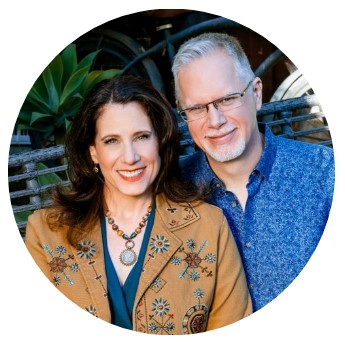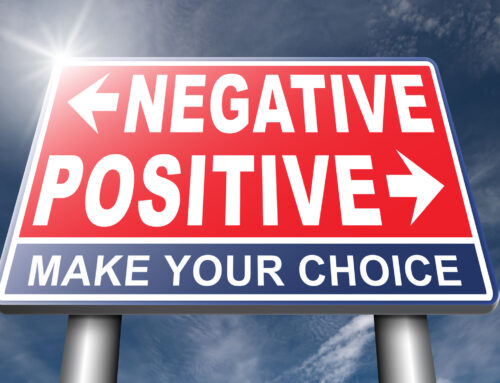7 Reasons Why You Feel Emotionally Distant From The Guy You’re Dating And What It Means For Your Future With Him
One of the best parts of the early stage of dating is discovering each other and creating emotional connection and intimacy. Opening your heart to someone new has so much hope and possibility for what you can create together. But what if you start to feel emotionally distant or emotionally detached from the guy you’re dating?
Does feeling emotionally detached mean that the relationship is doomed, or can the two of you rekindle the connection?
Many things can cause you to feel emotionally distant from your guy. Life has a way of intruding on your love story. You can get busy with work or have family issues come up. Perhaps it’s been difficult for the two of you to find time together. Over time in any relationship, there is a natural tendency for the excitement of the Romance Stage to wear off.
But what if something else is causing you to feel emotionally distant, unable to reconnect, and doubt if this is the right man for you long-term?
There are serious issues that could be causing this disconnection. Intimate relationships are nurtured when both people make the effort to stay connected and make each other a priority. Without that effort, love can wither on the vine.
One of the reasons many people give for breaking up is that over time they just grew apart. What if that didn’t have to happen? What if you could keep the emotional connection alive and nurture it to grow deeper between the two of you?
There are many reasons that love can die before it has time to set roots. Here are some of the more hazardous reasons that you’re feeling emotionally detached from your guy.
7 Reasons Why You Feel Emotionally Distant From The Guy You’re Dating And What It Means For Your Future With Him
-
Avoiding Conflict
Going along to get along is not a recipe for deepening intimacy. Conflict can feel uncomfortable but avoiding it does not make it go away. It will create emotional distance between the two of you if you don’t clean things up. When you avoid conflict, it can make the issue grow larger over time and breed into a pattern of emotional distance.
Another ugly side effect of avoiding conflict is that eventually, the pressure of unexpressed emotion can explode like an emotional volcano. Both of you end up feeling terrible and the cycle of avoiding conflict continues. Just because you feel emotionally detached on the surface because you’re not fighting doesn’t mean that anger and resentment won’t continue to build and create a barrier to a deeper connection.
You may believe that your people-pleasing strategies make you a nicer person. Not wanting to seem like a difficult person or avoiding rocking the boat may make you someone who is easy to get along with, but ultimately these strategies will not get you the lasting love you desire and block emotional connection and intimacy.
-
Not Resolving Your Conflicts
Maybe you and your partner don’t avoid conflict. Just because you’re expressing your frustration with each other doesn’t naturally lead to more connection and intimacy. If you aren’t resolving your conflicts and repairing after a fight you are just as guilty of creating emotional distance.
Unresolved conflicts have a way of popping up over and over again. You end up in a cycle of fighting, making up, and fighting again. This puts stress on the relationship and creates a power struggle between the two of you.
Emotional intimacy cannot thrive if you don’t feel safe expressing yourself or are at odds with one another.
Resolving your conflicts requires you to accept your differences and find a more respectful way of discussing them. If you don’t feel respect for each other’s differences, then your relationship won’t be able to survive the strain.
-
Inner Conflicts
Inner conflicts occur when you have two parts of you that seem to have opposing needs. Maybe part of you values your independence and another part of you wants to be available when your man wants to connect. These conflicting desires can leave you feeling emotionally detached in your relationship because your needs won’t feel met. You’ll end up feeling stuck and unable to create a stronger connection with your guy.
Self-sabotage, being emotionally unavailable, and resistance to making commitments are all symptoms of inner conflicts. Unresolved internal conflicts will lead you to feel ambivalent about your desire for love. You may lack motivation because you feel stuck inside.
You will most likely send mixed signals to your partner, causing them to wonder whether you are really interested in a long-term relationship. Or your man may simply be unaware of how to please you which will cause him to move on to someone else whose heart he can win and make happy.
Introspecting and journaling about your conflicts can help bring them out into the open and give you the resources to resolve them. Until you do, you will continue to feel emotionally distant, and lasting love will be elusive.
-
Not Emotionally Available
There are a lot of reasons someone can be emotionally unavailable for an intimate relationship. Unresolved trauma, addiction, fear of heartbreak, or being cynical about love are just a few. Whatever the underlying reason, if you or your partner are not emotionally available then the relationship will never take off or have a chance at longevity.
Chemistry and great sex can mask emotional unavailability. The excitement of attraction can make it feel like there is something more going on. But true intimacy requires that you share your emotional truth, risk opening your heart, and be vulnerable.
People who are emotionally unavailable will often have good cover. Joking about issues instead of addressing them, intellectualizing their feelings, or putting off conversations about the relationship are common tactics. You’ll always end up feeling emotionally distant and no relationship can withstand that.
-
Not Speaking Up About Needs Or Desires
If you keep your needs and desires to yourself and expect your partner to just intuit them, then you are creating an emotional distance between you. Asking for what you want and having your partner deliver on your request will create trust and an understanding that encourages emotional connection.
Sacrificing your needs and desires will eventually create anger and resentment. If you’re giving and expect your partner to reciprocate, but not explicitly making a request, then you’re setting yourself up to be disappointed and creating emotional distance between you.
Having unfulfilled needs will leave you feeling animosity towards your partner and ultimately you can end up feeling emotionally distant and emotionally detached.
-
Not Being Emotionally Authentic
Putting up a false front because you think that you’ll be rejected if you share your emotional truth creates emotional distance between the two of you. The strategy of twisting into a pretzel to not upset or offend someone is exhausting and ultimately inauthentic. At some point, you’ll have to drop the façade and just be yourself.
Emotional authenticity is the doorway to emotional intimacy. Sharing how you feel is an invitation to your partner to share his feelings. If you’re including your opinion about him or his actions, then you’re creating more emotional distance and pushing him away instead of creating connection.
Emotional authenticity isn’t about him or how he is behaving. It’s about you and your feelings. Sharing your emotional truth is also how you create connection after a conflict. Blaming, shaming, or guilting your partner could cause him to become emotionally detached because you’re creating an unsafe emotional environment.

-
Not Owning Your Triggers
It’s normal and natural to get triggered. The wounds of your childhood and the strategies you developed to deal with them are part of your behavior in an intimate relationship. If you aren’t taking responsibility for your triggers, you’ll create emotional distance between you and your man.
You aren’t responsible for triggering your partner and he isn’t responsible for triggering you. Those wounds predate the relationship. However, if either of you are blaming your partner for your triggers you’re creating an environment where intimacy can’t grow.
It’s easy to forget that you’re projecting your fears and insecurities onto your partner and his behavior. This creates a funhouse mirror effect where you don’t recognize that your partner is reflecting your wounds back at you. When you take responsibility for what’s yours, then you can create a strong emotional bond, one where communication is safe, and the emotional intimacy upon which a lasting, loving partnership is built.
Love is a feeling, but it is also a choice and an action. It takes courage to keep your heart open in an intimate relationship; the rewards are immeasurable. Deep down you want to be loved for who you really are. The best way to receive that is to show up as who you really are and share your emotional truth.
Lasting love won’t just happen and always be easy, but when you step through the hot door of discomfort and share your authentic truth you create the space for a true connection with your man. To choose love means to make loving choices for yourself, and to extend grace to your partner who has earned the benefit of the doubt. When you choose love you’ll create an opportunity for love to grow between you. And when you allow love to grow, you don’t have to worry about feeling emotionally distant or being emotionally detached from your significant other.
If you’re unsure of how to select an ideal partner, or you’re stuck in a pattern of feeling emotionally detached or emotionally distant from the person you’re seeing watch this video to learn about what may be blocking you. You’ll discover a new way of looking at your relationship patterns and how to transform them for good.
About the authors

Orna and Matthew Walters are dating coaches and founders of Creating Love On Purpose with a holistic approach to transforming hidden blocks to lasting love, and the authors of Getting It Right This Time. They’ve been published on MSN, Yahoo!, YourTango, Redbook, Newsweek, Best Life, and have been featured guest experts on BRAVO’s THE MILLIONAIRE MATCHMAKER with Patti Stanger, and as guests with Esther Perel speaking about love and intimacy.









